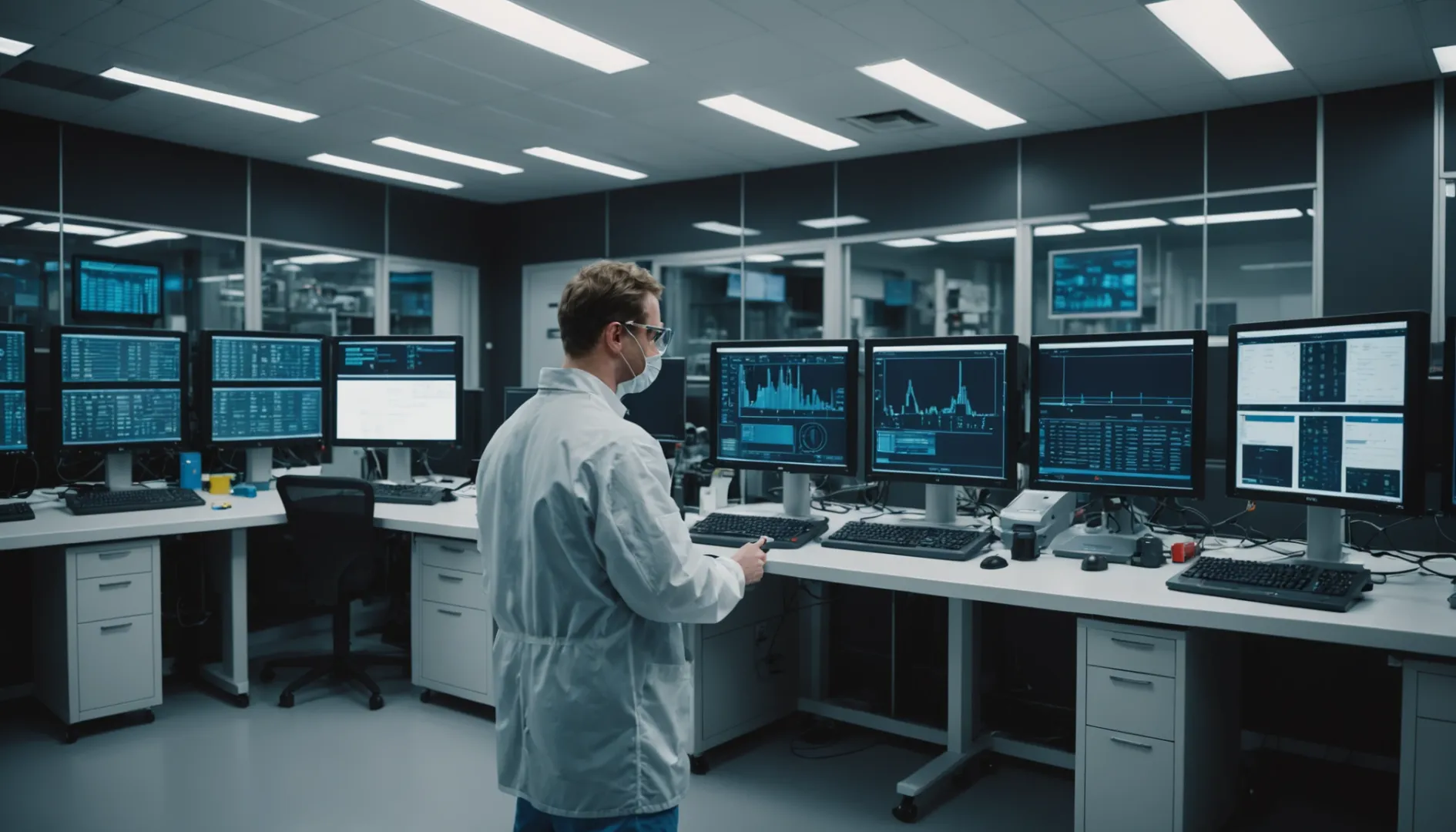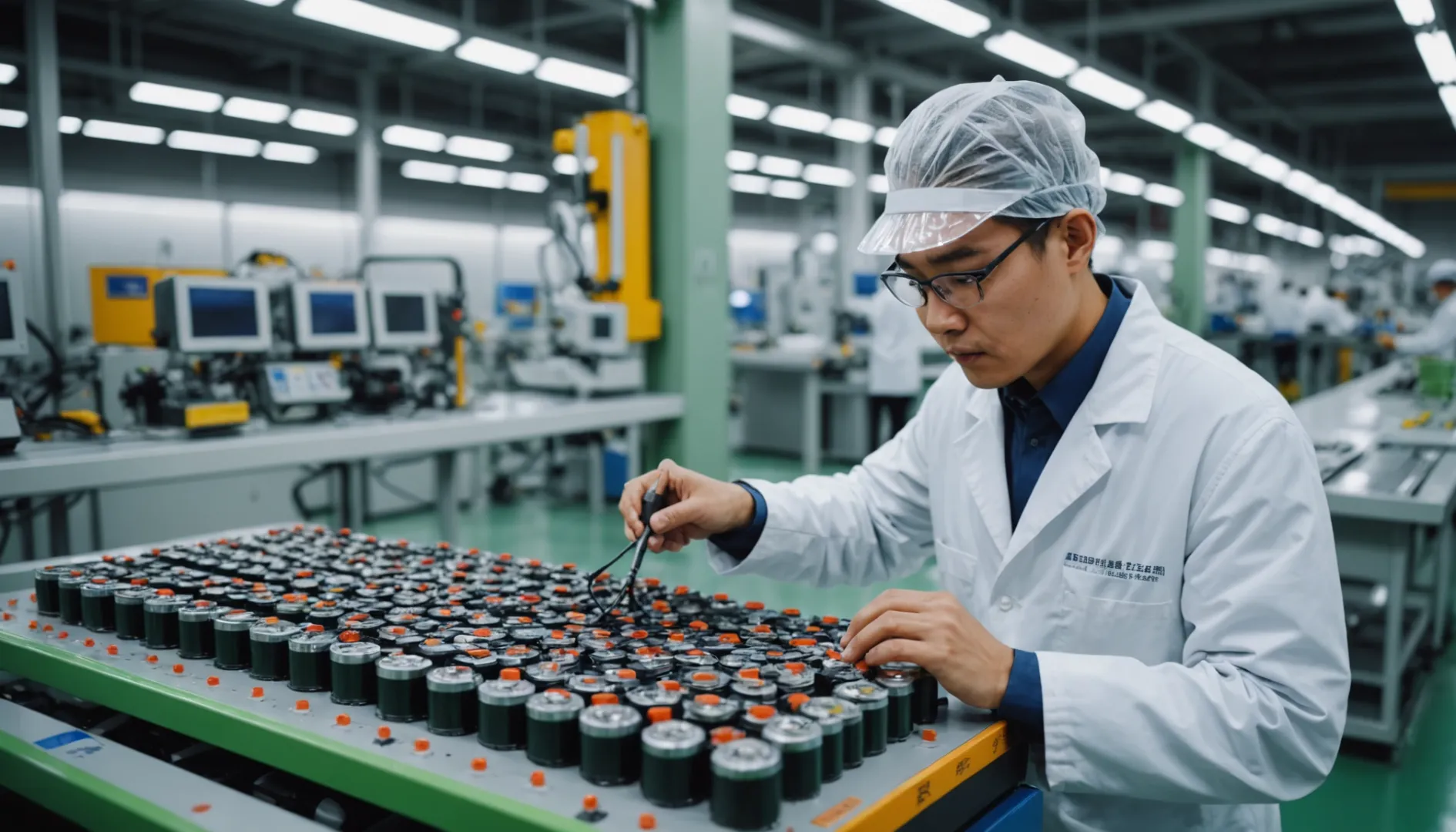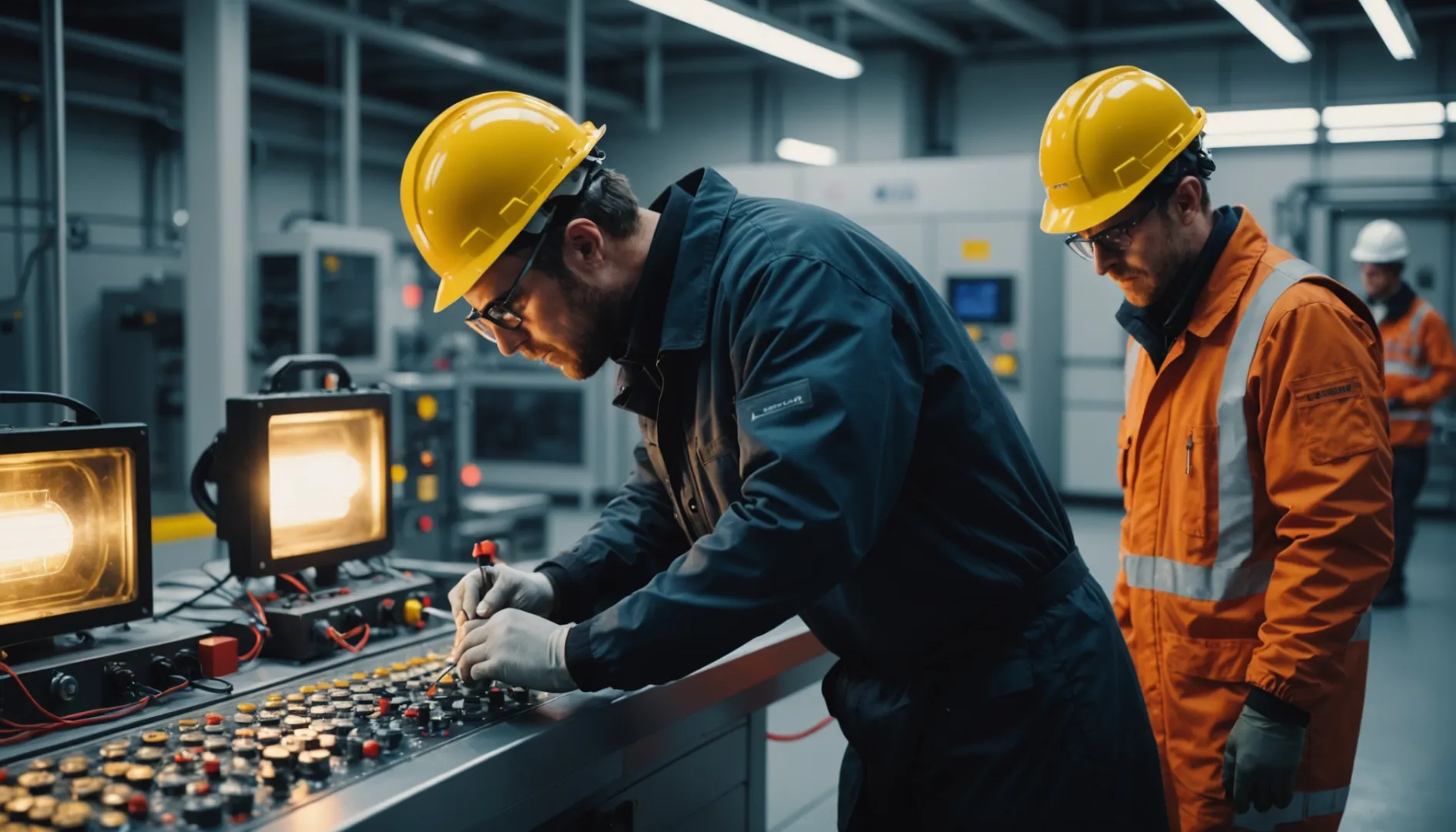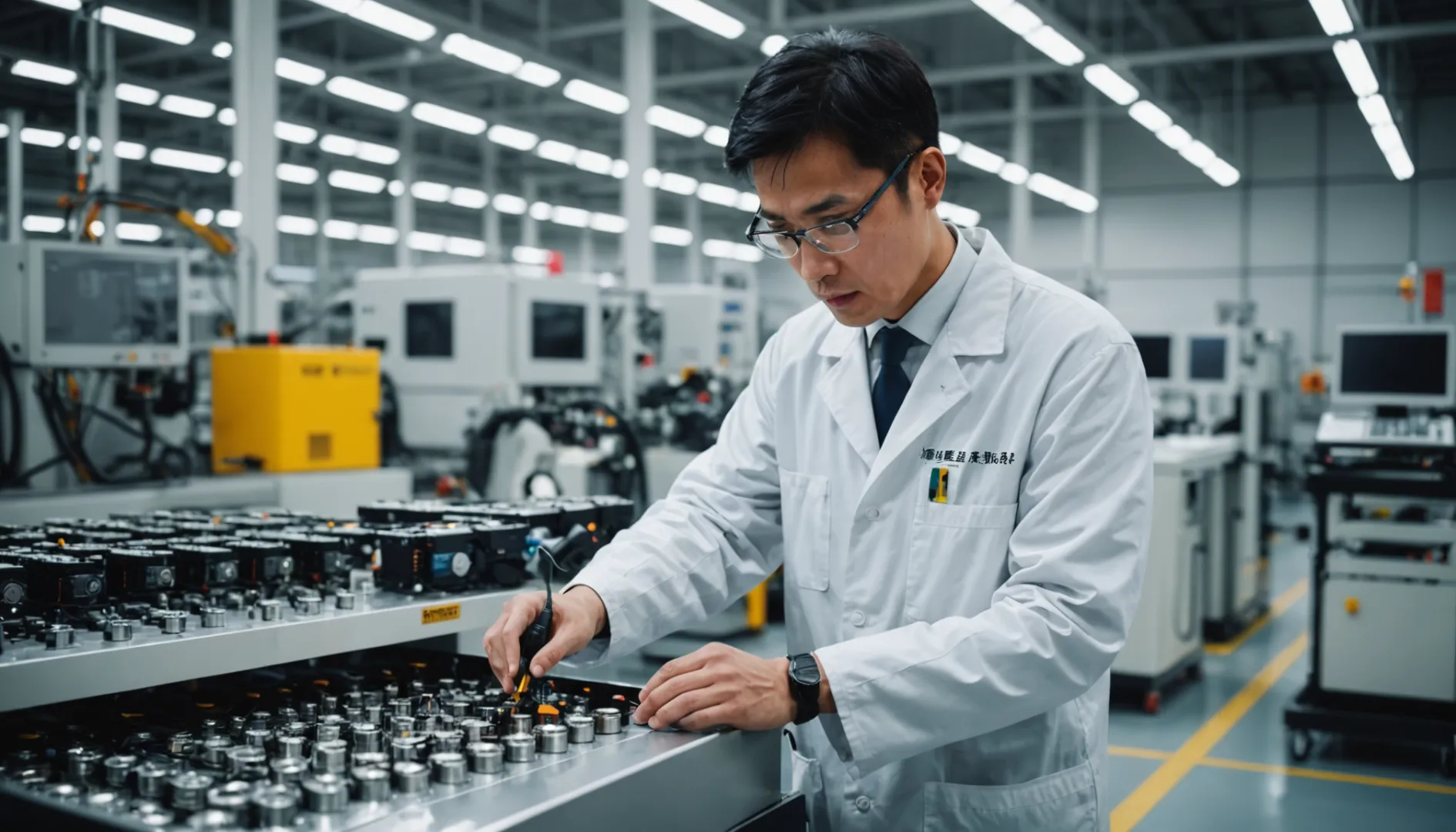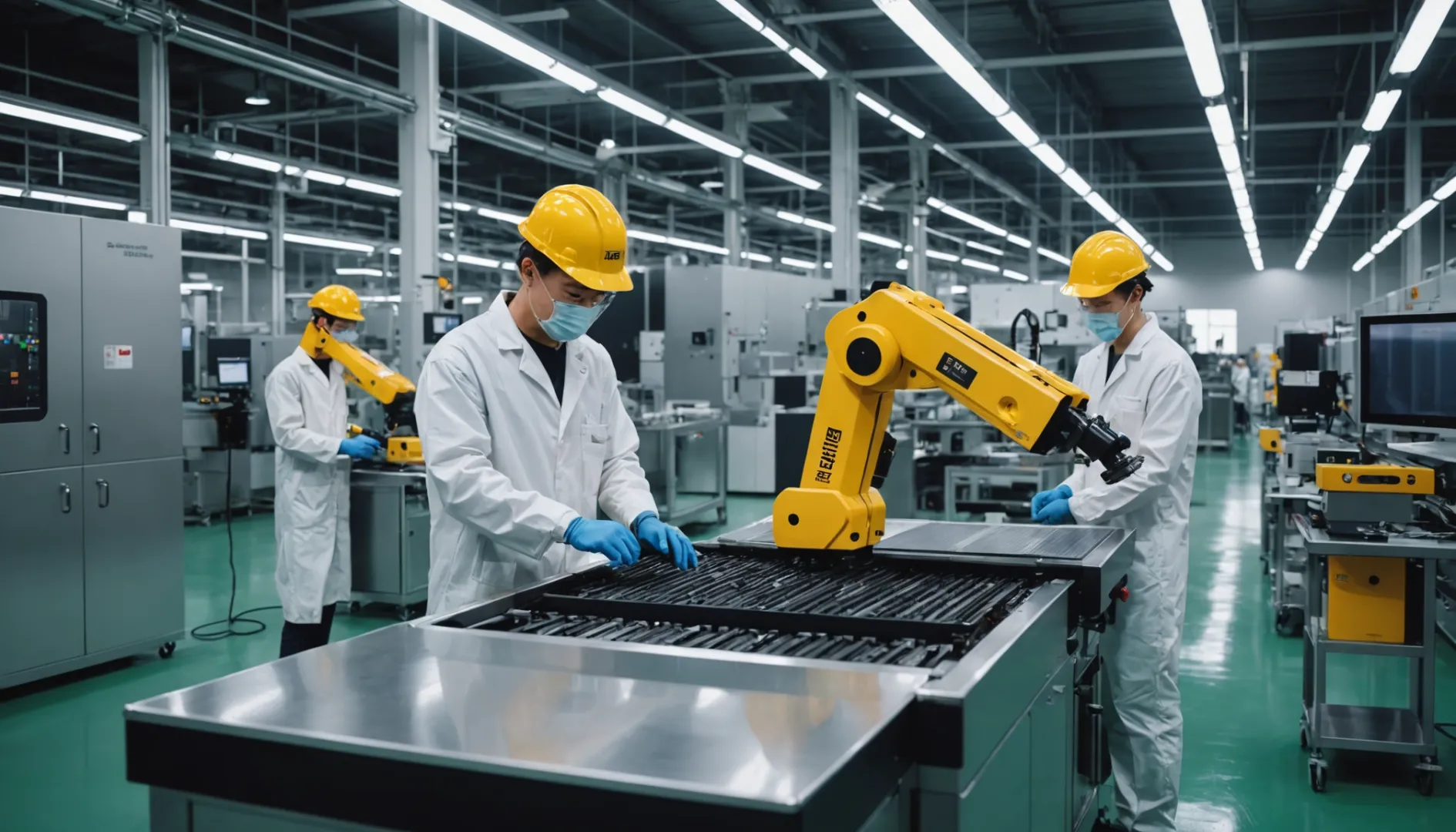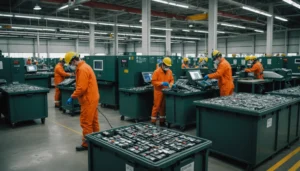Have you ever wondered why China's batteries are often seen as safer than South Korea's?
China's batteries are considered safer due to strict national standards, required certification, and cutting-edge manufacturing processes focused on safety and reliability. Meanwhile, South Korea is still bolstering its regulatory framework after recent battery fire incidents.
I remember the time I was researching electric vehicles, and it struck me how China seemed to be a step ahead in battery safety. It turns out, they have stringent regulations and mandatory certifications that really emphasize safety. South Korea, on the other hand, is catching up after dealing with some fire incidents. The differences are fascinating and have a huge impact on the EV market globally. Let's dive deeper into these aspects and see how they shape our choices and the industry's future.
China's GB/T 38031-2023 improves EV battery safety.True
The standard focuses on testing methods and intelligent BMS for safety.
South Korea has stricter EV battery regulations than China.False
South Korea is developing regulations but lags behind China's standards.
How Do China's National Standards Enhance Battery Safety?
I remember the first time I heard about China's national standards for battery safety—it was a game-changer for me as an EV enthusiast. Curious how these standards impact battery safety?
China's national standards for battery safety, like GB/T 38031-2023, mandate rigorous testing and certification processes. These ensure thermal stability, prevent overcharging, and integrate advanced battery management systems, which collectively enhance safety.
Stringent Testing Protocols
Picture this: you're behind the wheel of your electric vehicle, cruising down the highway with the assurance that your battery has undergone some of the most stringent testing in the world. China's national standards for battery safety, including the GB/T 38031-20231, ensure just that. These tests cover everything from thermal stability to resilience against mechanical impacts, giving peace of mind that the battery won't overheat or fail unexpectedly. It's like having an invisible guardian keeping watch over your ride.
Advanced testing not only identifies potential failure points but also ensures compliance with international safety norms, which is vital for the global EV market.
Intelligent Battery Management Systems
I once took a road trip and was amazed by the seamless performance of my car's battery. The secret? An intelligent battery management system (BMS), a cornerstone of China's safety enhancements. This smart technology constantly monitors crucial parameters like voltage and temperature, preventing issues like overheating. It's like having a personal tech assistant who ensures everything runs smoothly under the hood, so I can focus on enjoying the journey.
The intelligent BMS acts as a safeguard, ensuring that any deviations from normal operation are promptly addressed, thereby maintaining the battery's integrity and safety.
Compulsory Certification and Compliance
Before hitting the market, every lithium-ion battery in China must pass a rigorous certification process. Think of it as a rite of passage that guarantees only the safest batteries make it to consumers like you and me. This involves a comprehensive evaluation for thermal stability and mechanical robustness, ensuring each battery is ready to face real-world challenges.
Such certification measures2 guarantee that only those batteries which pass stringent checks are allowed in consumer markets, significantly reducing the risk of unsafe batteries reaching end-users.
TOWO Power Is a leader for solar product solution company from China
Transport and Storage Safety Measures
Transporting lithium-ion batteries safely is another crucial aspect that China's standards address. I remember reading about regulations that govern everything from packaging to handling protocols, all designed to prevent accidents during transit. These measures ensure batteries remain safe throughout their lifecycle—from manufacturing to end-use.
By enforcing these measures, China minimizes risks associated with the transportation of lithium batteries3, ensuring they remain safe throughout their lifecycle from manufacturing to end-use.
China's GB/T 38031-2023 improves EV battery safety.True
The standard emphasizes testing methods and intelligent BMS integration.
South Korea has stricter EV battery regulations than China.False
South Korea is developing regulations but is slower than China.
How Does Compulsory Certification Ensure Battery Reliability?
Imagine a world where every battery you use is a ticking time bomb. Thankfully, compulsory certification acts as a safety net, making sure that doesn’t happen.
Compulsory certification for batteries guarantees adherence to stringent safety protocols, preventing malfunctions and hazards. This involves rigorous testing for thermal stability, overcharging, and other risks, which builds consumer trust and assures manufacturers of product reliability.
Enhancing Safety Standards
Compulsory certification is pivotal in enforcing safety standards for batteries. In China, the government has mandated stringent testing procedures to ensure that every battery meets national safety benchmarks. This includes assessments for thermal stability, overcharging resistance, and mechanical impact resilience. By mandating these tests, certification minimizes the risk of battery failures, which can lead to fires or explosions.
The introduction of standards like GB/T 38031-20234 has set a high bar for battery safety in electric vehicles (EVs), compelling manufacturers to integrate advanced battery management systems (BMS) that actively monitor and optimize performance.
Building Consumer Trust
Certifications are not just about compliance; they're about fostering trust. Consumers are increasingly aware of the potential hazards associated with lithium-ion batteries, particularly following high-profile incidents. Compulsory certification assures them that the products they are using have been rigorously tested and deemed safe. This trust is crucial in markets like South Korea, where recent fire incidents have heightened consumer awareness about battery safety.
Moreover, initiatives like mandatory disclosure5 of battery manufacturer information to consumers are being discussed to enhance transparency further.
Driving Technological Innovation
While compliance with certification standards is a necessity, it also drives innovation. Companies are investing heavily in research and development to meet these regulations while maintaining competitive performance metrics. For example, firms like CATL in China have developed improved thermal management systems to prevent overheating.
These innovations not only help meet certification requirements but also push the boundaries of what batteries can achieve. Advanced manufacturing techniques6 used by Chinese manufacturers incorporate automated quality control measures, ensuring consistency and reliability across production lines.
Navigating Global Market Entry
Compulsory certifications can also dictate market entry strategies. To sell internationally, manufacturers must often comply with multiple certification regimes, such as UL 1642 or IEC 62133. These certifications assure international markets of a product's safety and performance, crucial for global expansion.
Understanding these standards allows manufacturers to better navigate regulatory landscapes across different countries, ensuring their products can reach a broader audience without compromising on safety or reliability.
China mandates certification for lithium-ion batteries.True
China requires batteries to meet safety specs before sale or use.
South Korea has stricter battery regulations than China.False
South Korea is developing regulations, but China has more stringent standards.
What Challenges Is South Korea Facing with Battery Fires?
Ever wondered why South Korea, a tech giant, is suddenly grappling with battery fires? Let's explore the underlying issues.
South Korea's battery fire challenges stem from evolving regulations, limited consumer information, and safety standard gaps exposed by recent incidents. Manufacturers face pressure to boost quality assurance and invest in safety technologies to tackle these problems.
The Growing Concern Over Battery Fires
You know, as someone who's always been fascinated by electric vehicles, it's been quite alarming to watch South Korea, a leader in EV technology, grapple with this sudden spike in battery fires. I remember reading about the amazing strides they've made in EV manufacturing, yet these incidents have certainly put a damper on things, causing quite a stir among both consumers and regulatory bodies. Despite their advancements, certain gaps persist—like their regulations, which are still playing catch-up compared to China's more stringent national standards7.
Emerging Regulations and Their Impact
I can't help but think about how South Korea is earnestly trying to ramp up its certification processes for EV batteries after these fire incidents hit the headlines. The government's rolling out plans for a system to improve safety standards, but it's not quite there yet. When I compare it to China’s proactive stance, South Korea's efforts feel like they're just getting off the ground. This lack of comprehensive regulation8 seems to be a big piece of the puzzle when it comes to these ongoing safety issues.
Transparency and Accountability Issues
Imagine buying a car and not knowing enough about the safety of the battery inside. That's kind of how it feels for consumers in South Korea right now. Current laws make it tough to get the lowdown on battery manufacturers, and without that transparency, accountability becomes a serious concern when things go wrong. As someone who values safety and transparency, I find the push for mandatory disclosure crucial for consumer protection9.
Technological and Manufacturing Pressures
It's hard not to feel for companies like LG Energy Solution and Samsung SDI, which have always been synonymous with top-notch manufacturing. Yet, these recent battery fires have shone a spotlight on them, pushing them to rethink their quality assurance processes. The pressure is on to pour resources into safety tech to dodge future mishaps—something that's crucial if they want to keep their stellar global reputation intact by enhancing their quality assurance10 processes.
Public Perception and Market Implications
I remember talking with friends who were once gung-ho about electric vehicles but are now hesitant thanks to all these fire reports. This 'EV-phobia' is real and could slow down EV adoption here if not addressed soon. For manufacturers and authorities, it's all about rebuilding consumer trust11 with solid safety measures and clear communication. Otherwise, we might see a slowdown in what should be an exciting transition to greener transport.
China's EV battery standards focus on safety and reliability.True
China's GB/T 38031-2023 standard emphasizes safety and reliability.
South Korea has stricter EV battery regulations than China.False
South Korea is developing regulations but lags behind China's standards.
How Are Manufacturing Techniques Impacting Battery Safety?
Ever wonder how the batteries powering our gadgets and cars stay safe? Dive into the world of manufacturing techniques that keep them from overheating or worse.
Manufacturing techniques greatly enhance battery safety through rigorous quality control, improved thermal management, and smart monitoring systems. These innovations aim to prevent dangerous malfunctions like overheating, ensuring safety in the booming electric vehicle market.
The Role of Quality Control in Manufacturing
Advanced manufacturing techniques play a pivotal role in enhancing battery safety. Automated quality control systems are being integrated throughout the production process. This ensures that each battery meets strict safety standards, reducing the risk of defects that could lead to malfunctions or failures.
For instance, Chinese manufacturers have adopted sophisticated methods to maintain consistency and reliability in battery performance. Implementing real-time monitoring during production allows for immediate detection and rectification of any anomalies. This proactive approach is crucial in preventing issues before they reach consumers.
Enhancements in Thermal Management Systems
One of the primary concerns in battery safety is managing heat generation. Overheating can lead to dangerous situations like thermal runaway. Innovative thermal management systems are now a standard part of battery design12.
Research and development efforts, particularly in China, have resulted in improved materials and design features that dissipate heat more effectively. This not only enhances safety but also extends battery life, making them more efficient and reliable for consumer use.
Intelligent Battery Management Systems
The integration of intelligent Battery Management Systems (BMS) is revolutionizing how batteries are monitored and maintained. These systems provide continuous oversight, ensuring optimal performance while safeguarding against potential hazards like overcharging or mechanical impacts.
The adoption of BMS13 technology is a significant step forward in preemptive safety measures. By leveraging data analytics, these systems can predict and prevent failures, offering peace of mind to both manufacturers and end-users.
Addressing Challenges in Established Manufacturing Processes
Despite advancements, some established brands face challenges related to recent fire incidents. For instance, South Korean manufacturers like LG Energy Solution are under pressure to enhance their safety protocols. Investing in advanced quality assurance processes is becoming crucial to mitigate future risks14.
These measures include revisiting existing manufacturing techniques and incorporating new safety technologies that align with emerging global standards. As the industry evolves, a commitment to continuous improvement will be essential to address these challenges effectively.
China's GB/T 38031-2023 mandates BMS in EV batteries.True
The standard emphasizes integrating intelligent battery management systems.
South Korea has stricter battery regulations than China.False
China is more proactive with stringent national standards and certifications.
TOWO Power Is a leader for solar product solution company from China
Conclusion
China's batteries are deemed safer than South Korea's due to stringent national standards, mandatory certifications, and advanced manufacturing processes, while South Korea is still improving its regulatory framework.
-
Discover specific regulations impacting EV battery safety. ↩
-
Learn how certification enhances battery reliability. ↩
-
Explore transport protocols ensuring battery safety. ↩
-
Learn about China's latest safety standard for EV batteries. ↩
-
Explore consumer rights regarding battery safety information. ↩
-
Discover innovative techniques ensuring battery quality and safety. ↩
-
Understand China's effective approach to battery safety regulations. ↩
-
Learn about South Korea's evolving regulatory framework. ↩
-
Explore how transparency impacts consumer safety. ↩
-
Discover how companies are improving battery safety. ↩
-
Gain insights into how public perception affects EV adoption. ↩
-
Discover how advanced designs improve battery safety and efficiency. ↩
-
Learn about the benefits of intelligent BMS in ensuring battery safety. ↩
-
Explore how enhanced processes help mitigate battery risks. ↩


